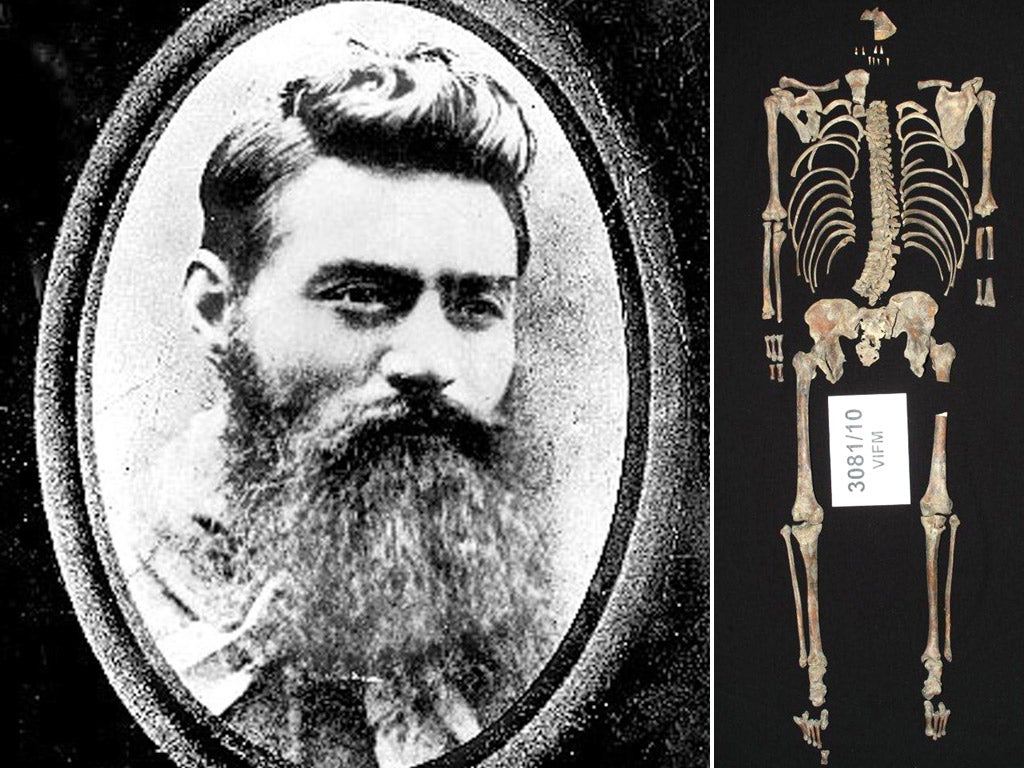Ned Kelly granted funeral – 130 years after execution

More than 130 years after he was hanged for shooting a policeman, the 19th-century bushranger Ned Kelly is finally to be laid to rest. But in death, as in life, he continues to polarise Australians, with some warning that his grave should not become a shrine.
Kelly was buried in the grounds of Old Melbourne Gaol in 1880, but his remains were later exhumed and reburied in a mass grave outside Melbourne's Pentridge Prison. In 2008, his bones were discovered along with others in a remote part of the former Pentridge complex. In September, Kelly's remains – missing a skull – were identified.
Now they are to be handed back to his family's descendants, who plan to hold a funeral, in accordance with Kelly's last wish. The day before he was executed, the Irish-Australian wrote to the prison governor, asking "permission for my friends to have my body that they might bury it in consecrated ground".
Anthony Griffiths, a grandson of Kelly's younger sister, Grace, said yesterday that the family hoped to bury him in a churchyard near Glenrowan, the rural Victorian town where he was captured after two years on the run. His mother, Ellen, and several of his siblings are buried there in unmarked graves.
"Our aim is to give him a dignified funeral, like any family would," said Mr Griffiths, whose donation of a DNA sample helped forensic scientists to identify Kelly's remains. He said the family might also hold a public memorial service.
That idea has infuriated the secretary of Police Association Victoria, Greg Davies, who said Kelly was no better than Carl Williams, a notorious Melbourne gangster murdered in jail last year.
"He wasn't a Robin Hood," Mr Davies said. "He didn't steal from the rich and give to the poor; he stole from everyone and kept the proceeds for himself." The Victorian Attorney-General, Robert Clark, said the return of Kelly's bones was "not a matter of paying homage", but of finding an appropriate resting place for them.
His grave, though, is likely to attract tourists and devotees of his story, which has inspired several films and numerous books, including Peter Carey's Booker Prize-winning True History of the Kelly Gang. A legendary figure, Kelly is regarded by some as a thief and murderer and by others as a champion of the underclass in a harsh colonial society.
Subscribe to Independent Premium to bookmark this article
Want to bookmark your favourite articles and stories to read or reference later? Start your Independent Premium subscription today.

Join our commenting forum
Join thought-provoking conversations, follow other Independent readers and see their replies